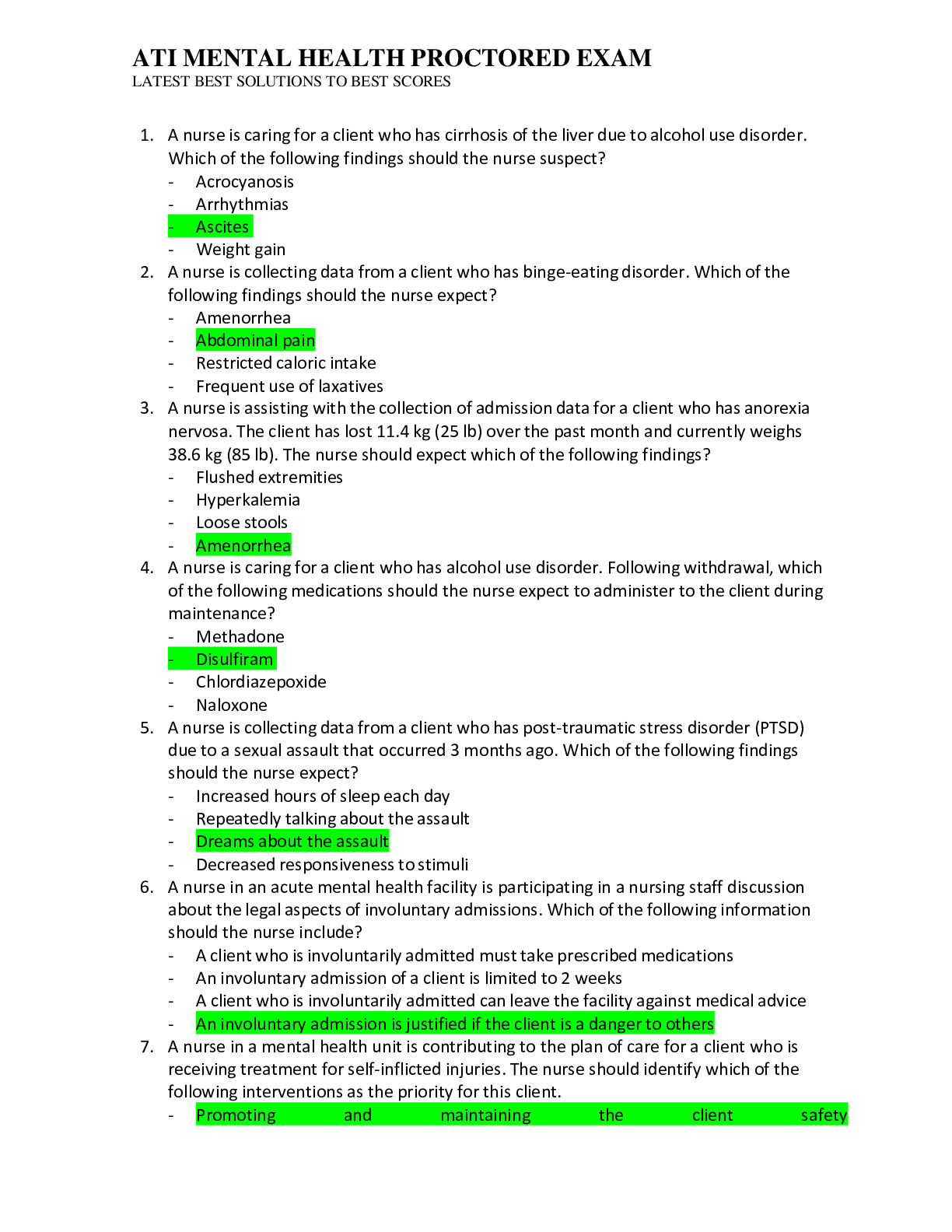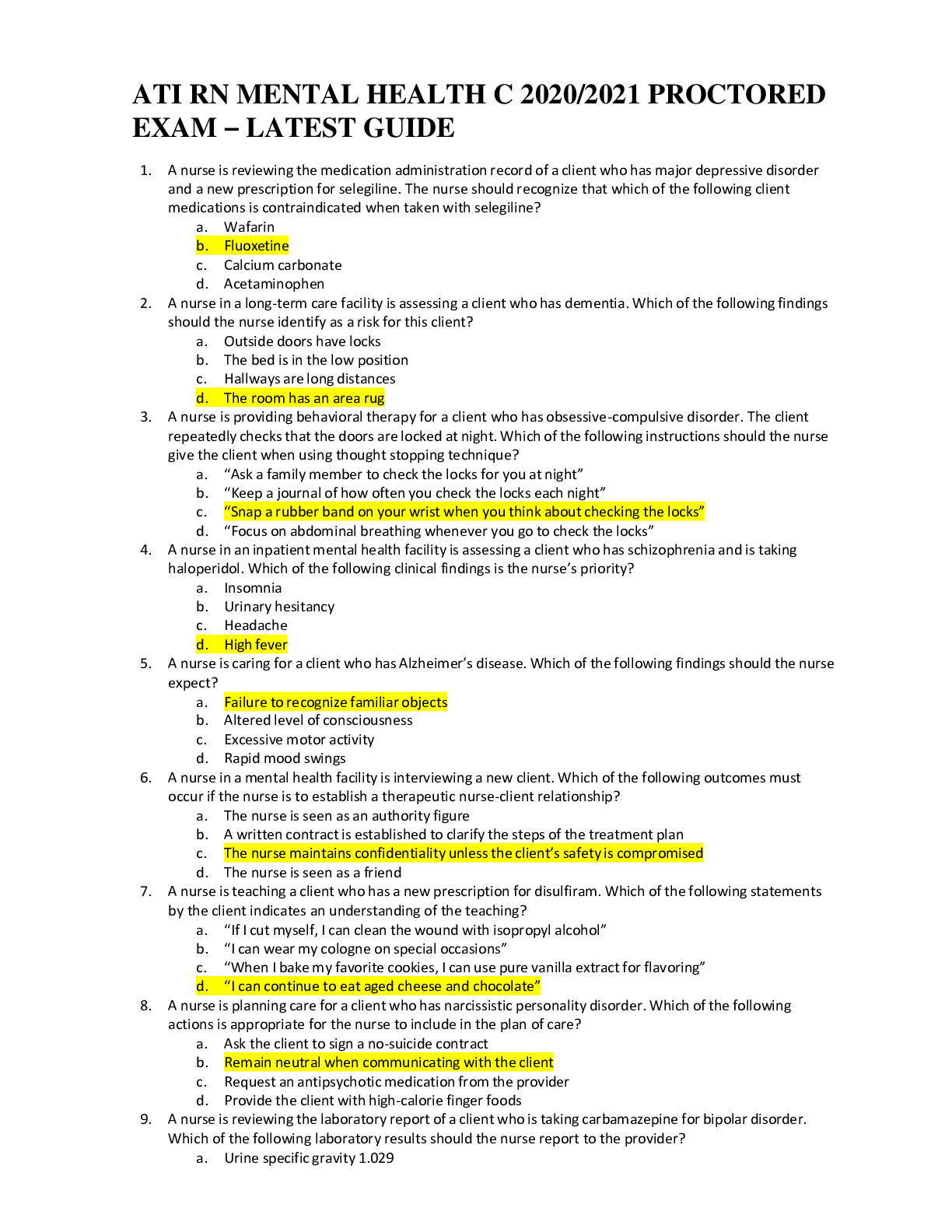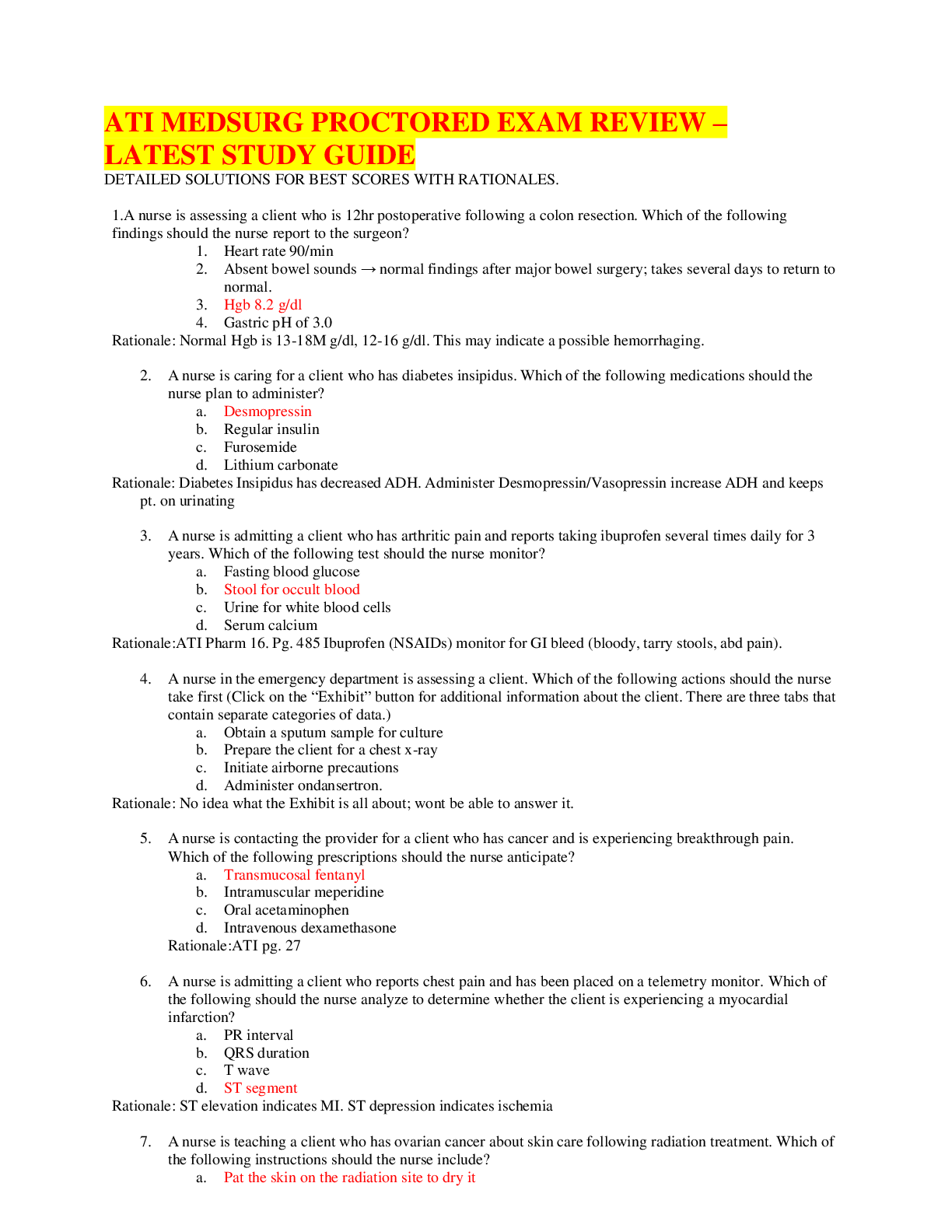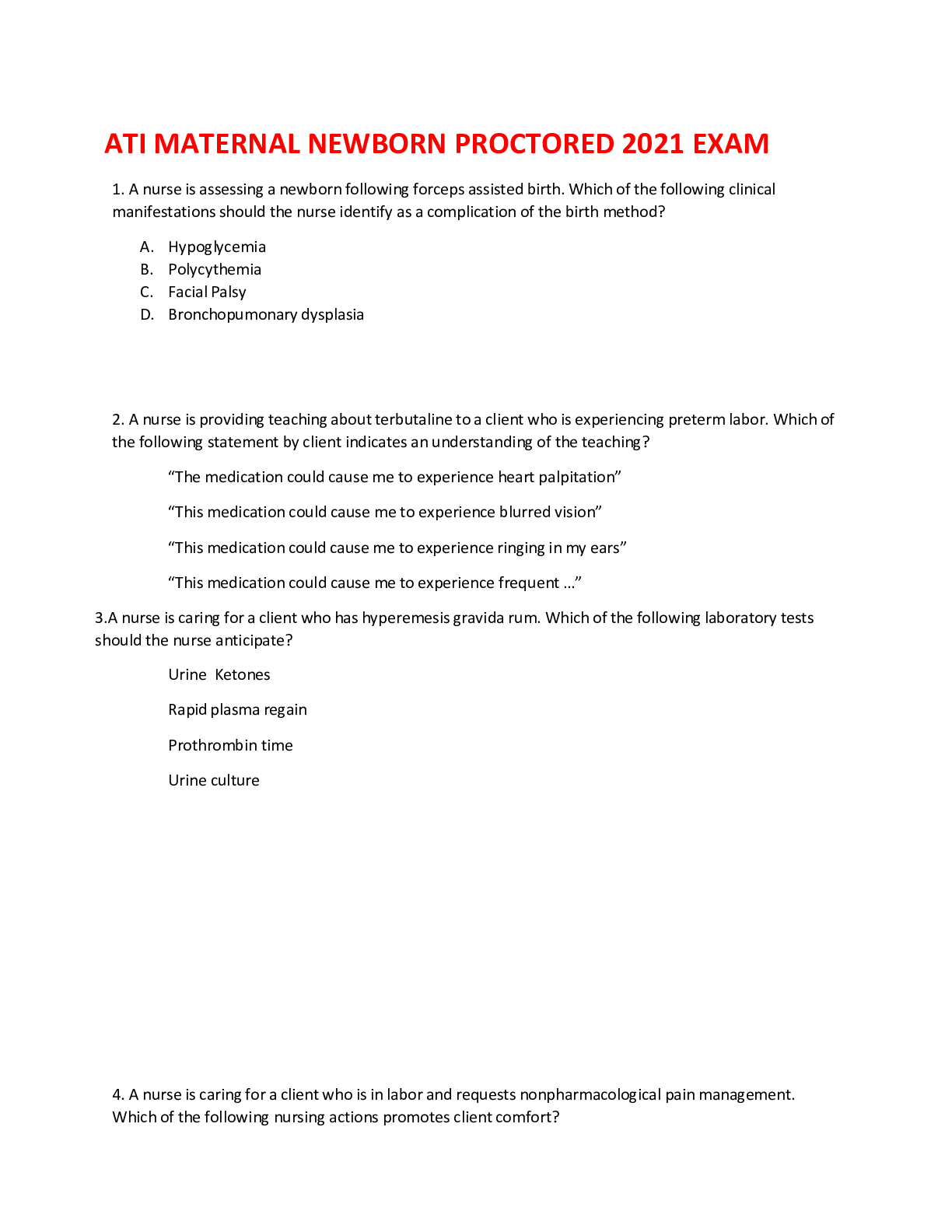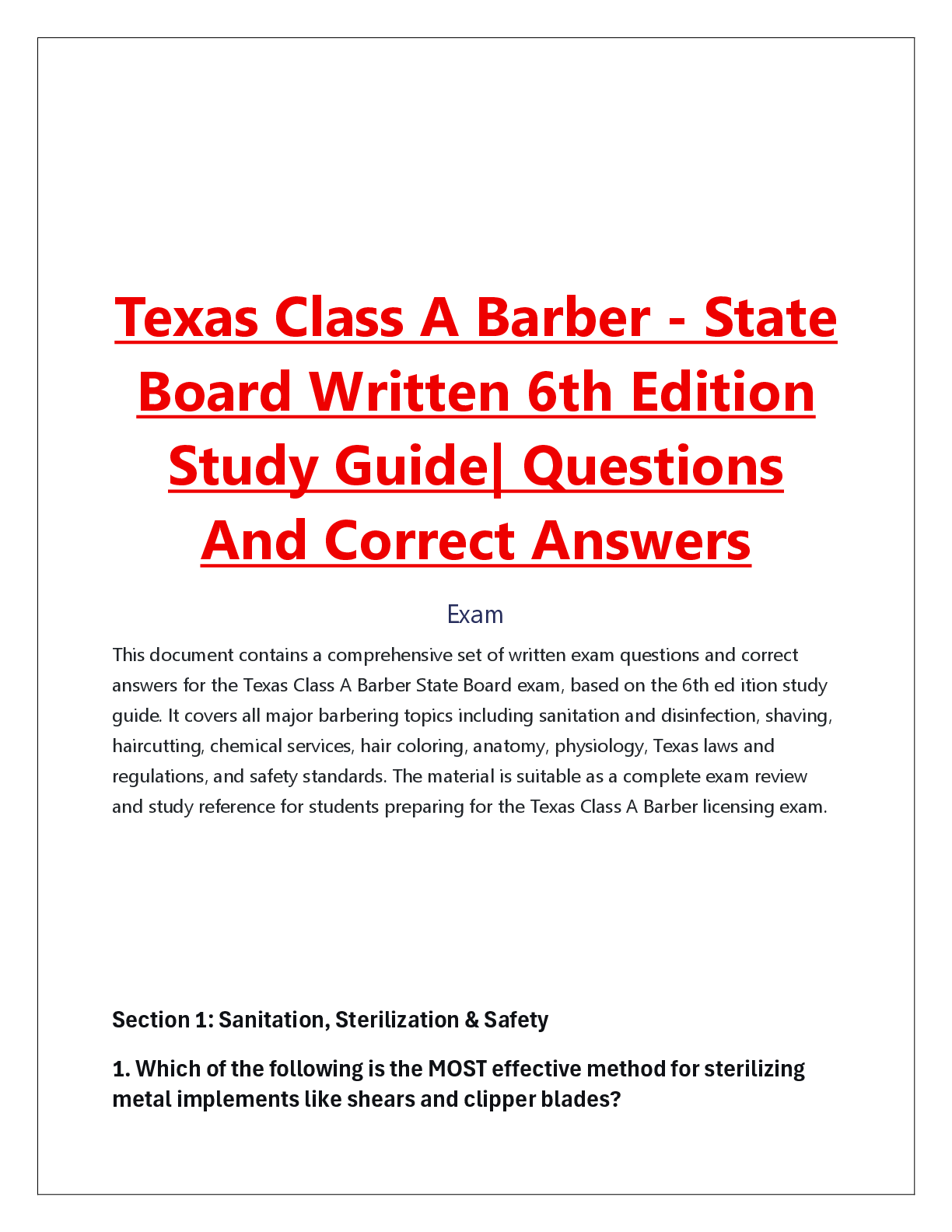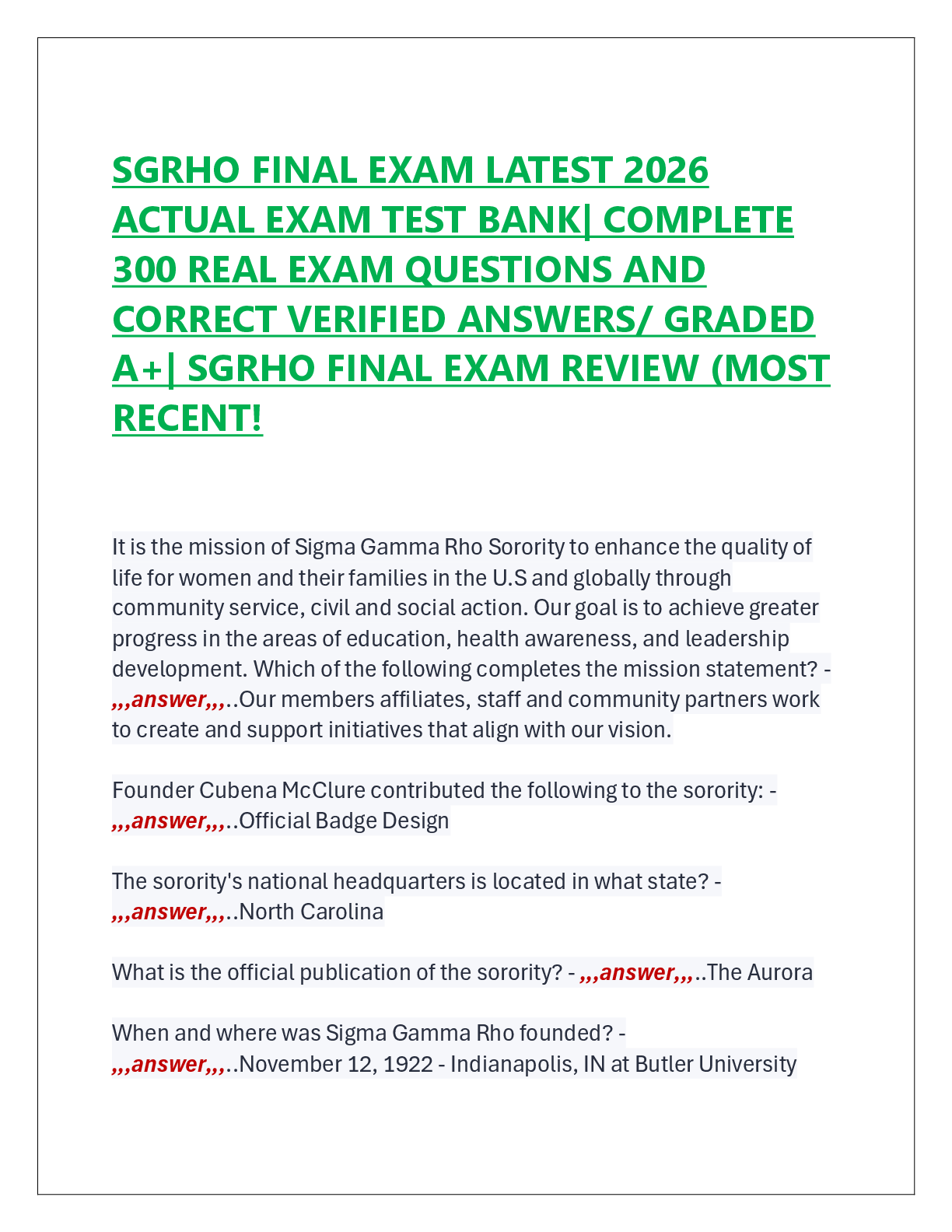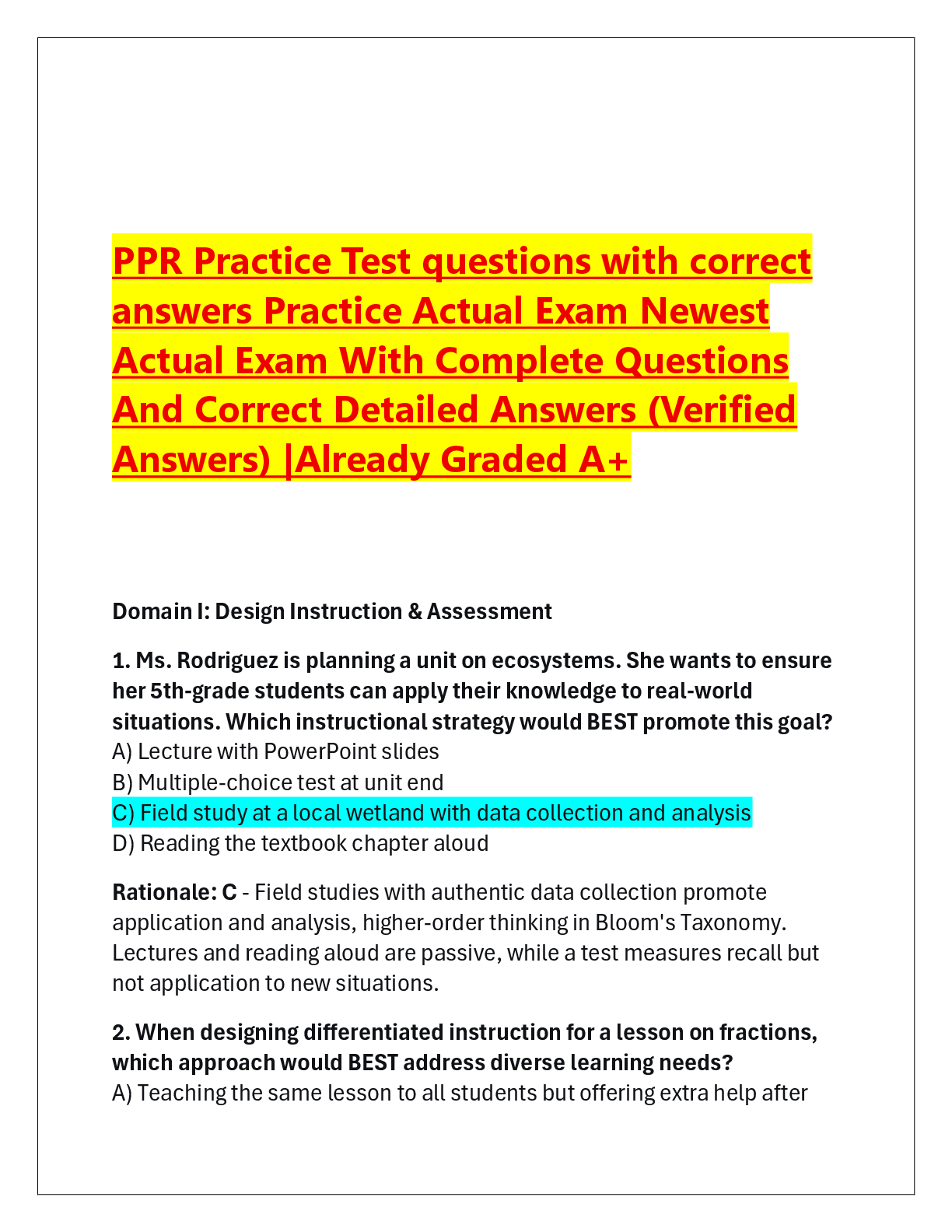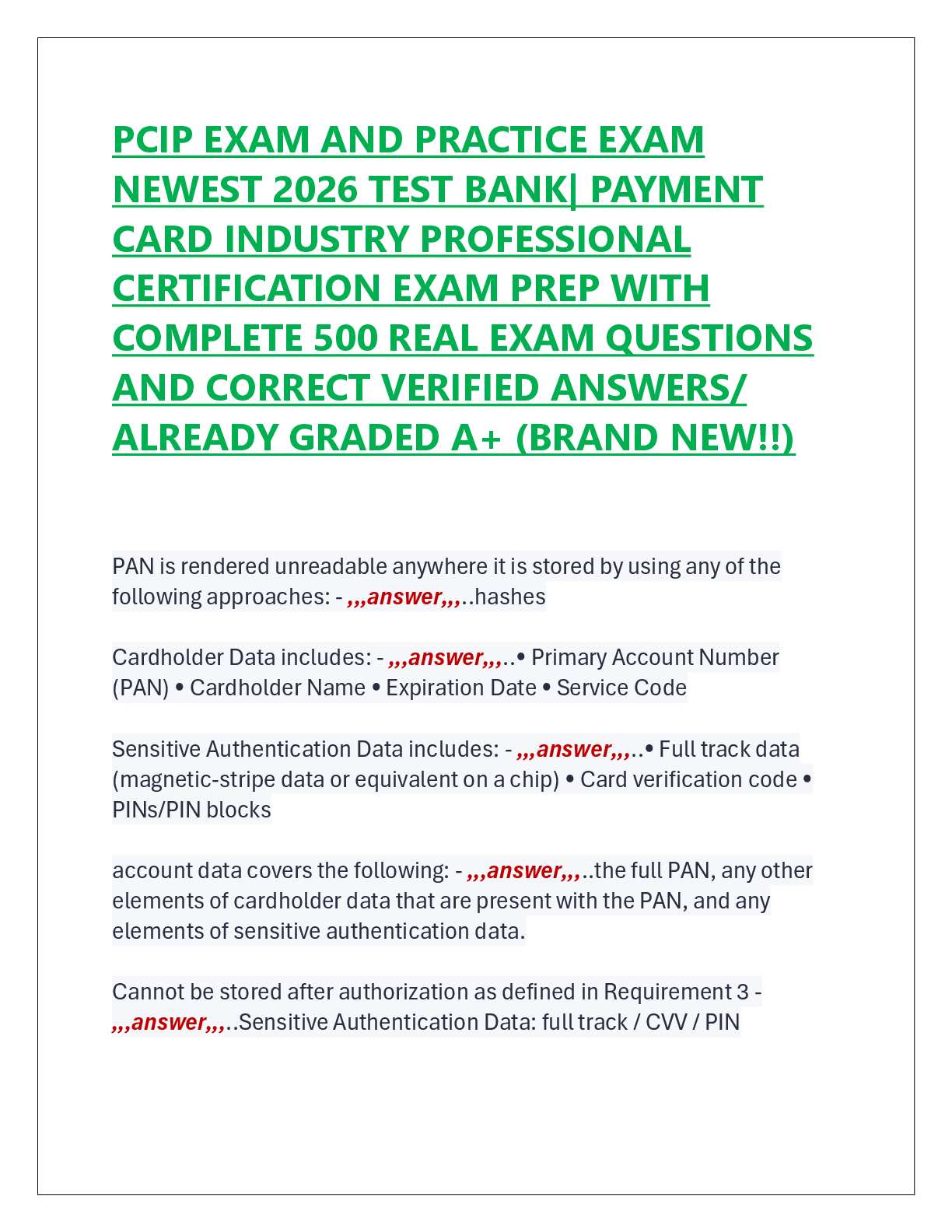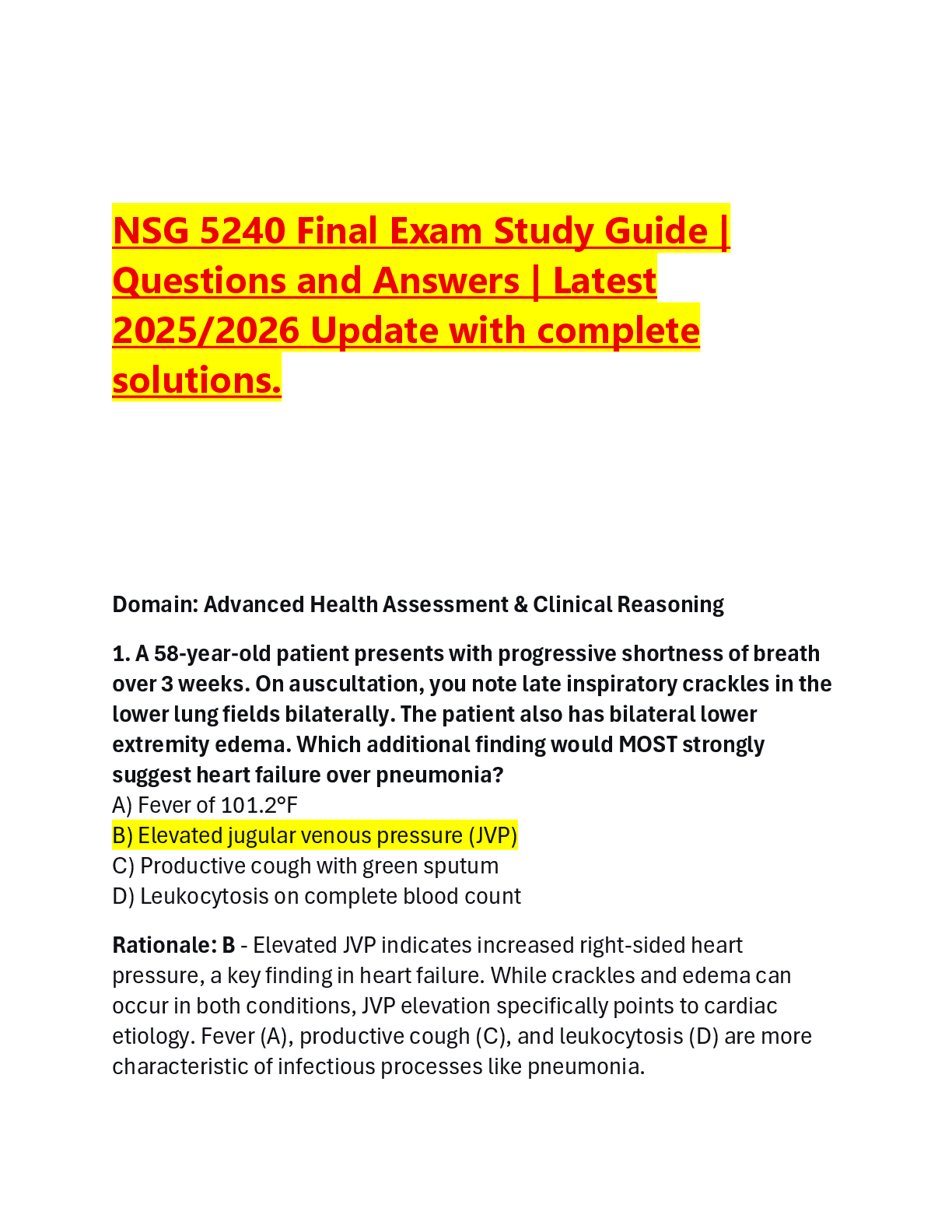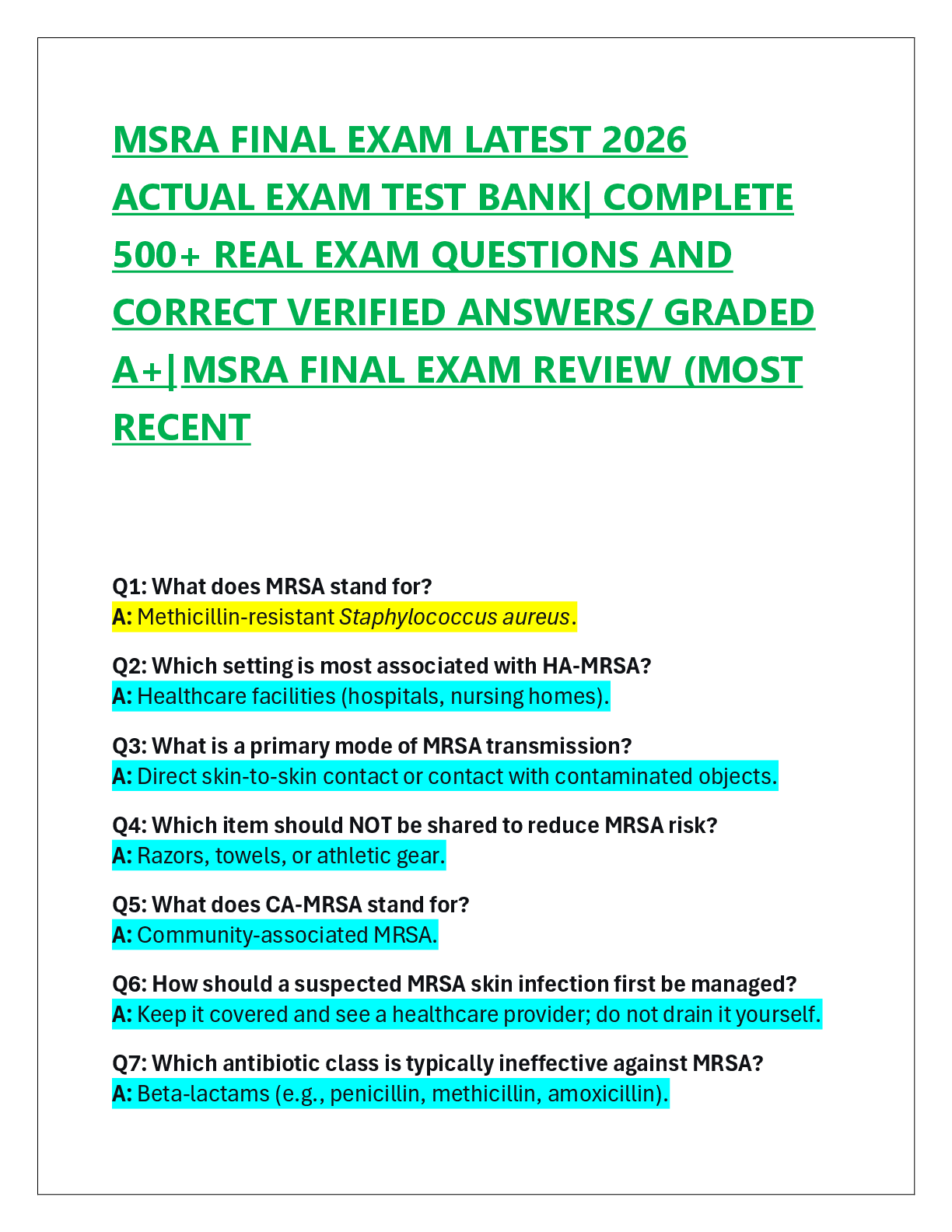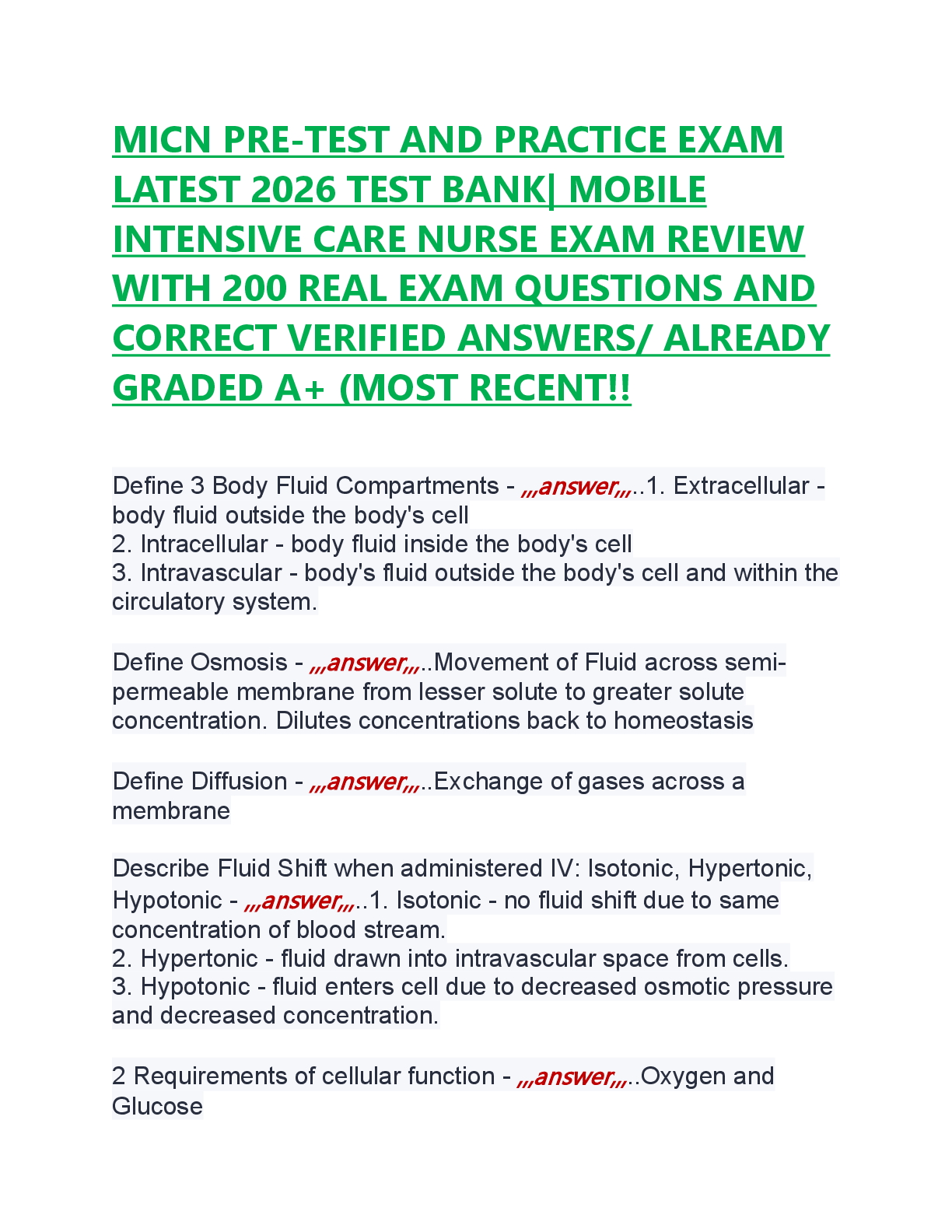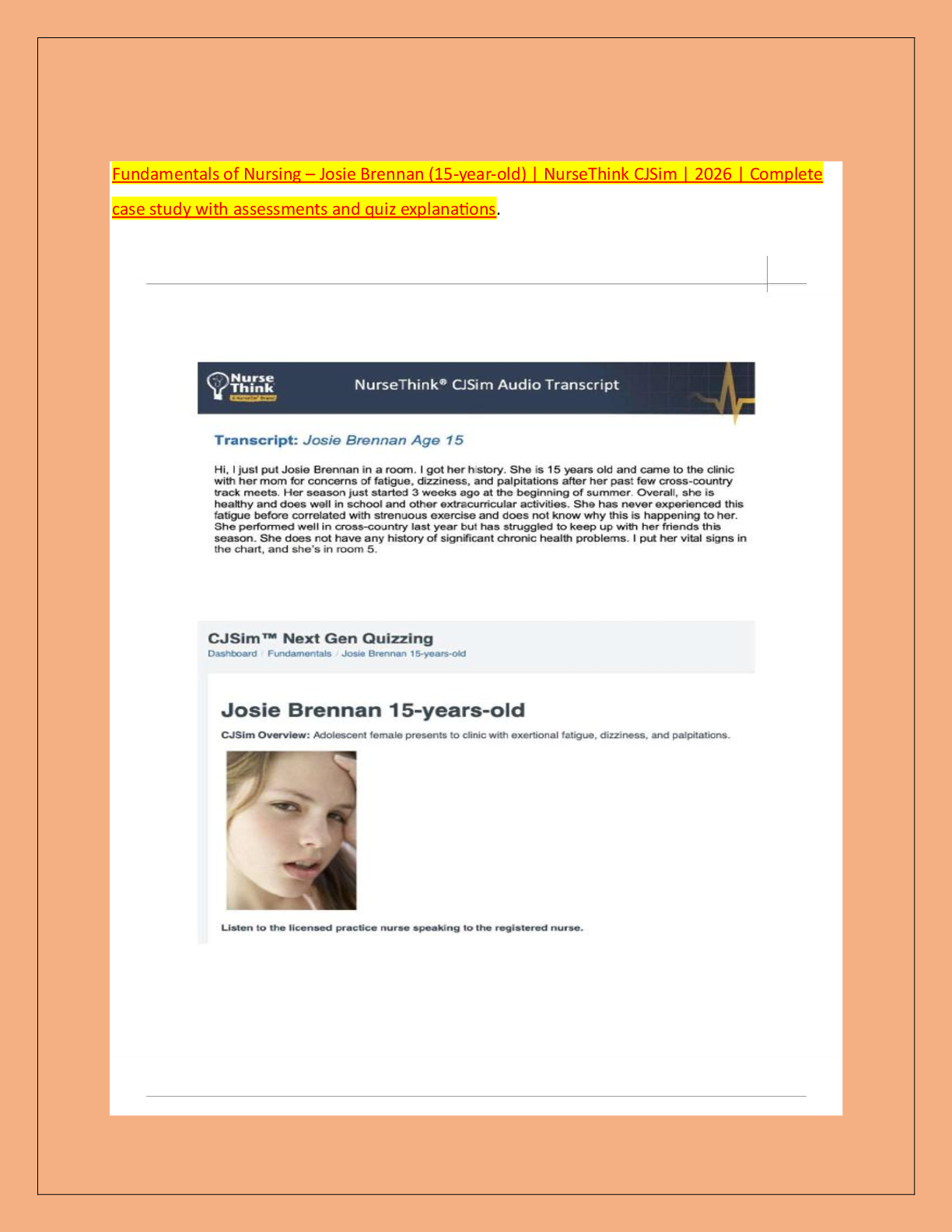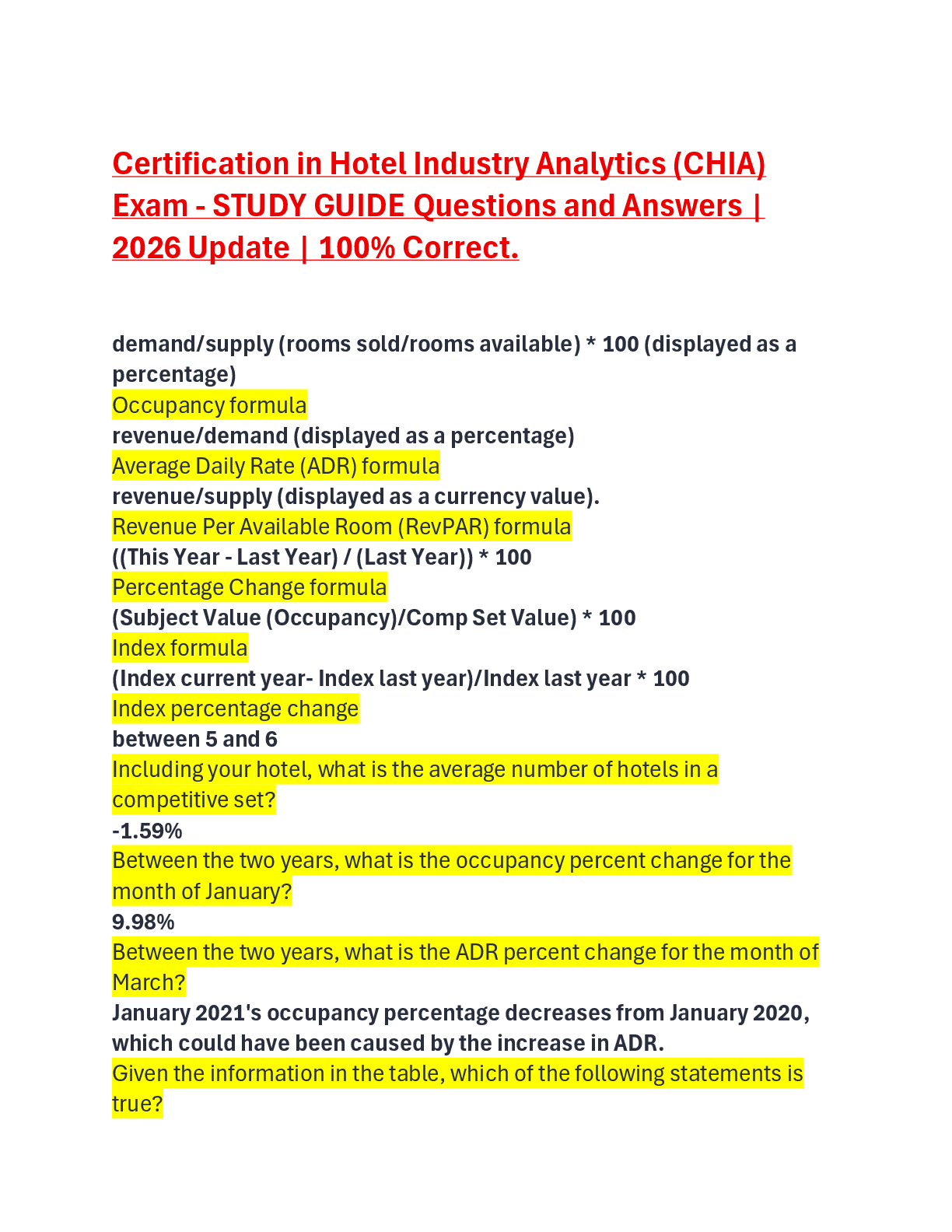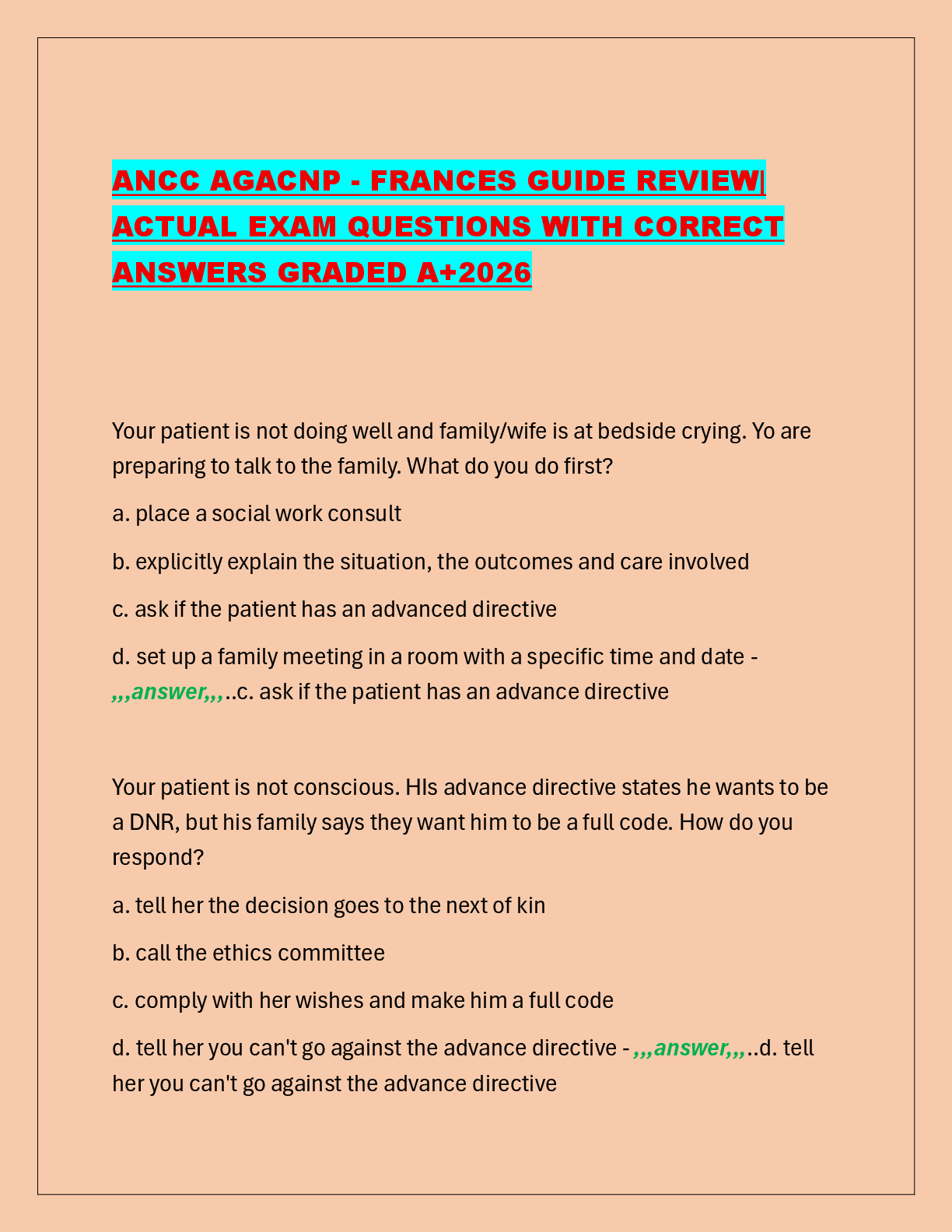Health Care > EXAM > HEALTH PROMOTION ,REVISED 2021 (All)
HEALTH PROMOTION ,REVISED 2021
Document Content and Description Below
1- A 58-year-old patient has an annual exam. A fecal occult blood test was used to screen for colon cancer. Three were ordered on separate days. The first test was positive; the last two were negative ... . How should the nurse practitioner proceed? Rescreen in one year. Perform a fourth exam. Refer him for a colonoscopy. Correct Examine him for hemorrhoids. Explanation: A fecal occult blood test is performed multiple times on different days because tumors don’t consistently excrete blood. The reason multiple are performed is to increase the likelihood of identifying blood. The patient needs to have a colonoscopy performed for examination of the colon. The standard of practice is to refer all positive colon cancer screens for colonoscopy. 2 -A criterion for medication choice in an older adult is: long half-life to prevent frequent dosing. dosing of 3-4 times daily. pill color and shape for easy identification. half-life less than 24 hours. Correct Explanation: Many factors go into prescribing for older adults. Some important safety criteria include established efficacy, low adverse event profile, and half-life less than 24 hours with no active metabolites. Active metabolites would produce a longer effect of the drug in the patient. Dosing of a medication three to four times daily invites dosing and medication errors. Once- or twice-daily dosing is ideal. Pill color and shape is never a criterion for prescribing. Patients who are cognitively able will recognize the color, shape, and size of pills they take on a regular basis. 3- What should the nurse practitioner recommend to any elder taking medications? Have someone check your medications prior to taking them Never take your medicine on an empty stomach Keep a list of all of your medications with you Correct Have a pharmacist review your list once a year Explanation: A list of current medications should be kept with each patient and carried with him, especially when healthcare visits are scheduled. Many older adults are capable of taking medications without supervision. Many medications should be taken without food (thyroid supplementation for example). A pharmacist can evaluate the list of medications for drug-drug interactions, but the pharmacist will not know the diagnoses and other reasons for choosing the medications. Question: 4- What temperature should be set on a water heater in the home of an older adult to prevent burn injury? Less than 110 degrees Less than 120 degrees correct Less than 130 degrees Less than 140 degrees Explanation: Hot water heaters are common sources of burns in homes of older adults and very young patients. Many safety organizations in the United States believe that burns can be prevented if hot water heaters are set to less than 120° F. Question: 5- What is the recommendation from American Cancer Society for assessment of the prostate gland in a man who is 45 years old and of average risk for development of prostate cancer? He should have: screening starting at 50 years of age. Correct prostate specific antigen (PSA) now. PSA and digital rectal exam now. digital rectal exam only. Explanation: At age 50 years, males of average prostate cancer risk should have PSA measurement with or without digital rectal exam (DRE). If they are deemed to be of high risk because of a family history (first-degree relative with prostate cancer before age 65 years) or race (African American), screening discussions should take place at age 40-45 years. If initial PSA is > 2.5 ng/mL, annual testing should take place. If the initial PSA is < 2.5 ng/mL, test every 2 years. Question: 6 - A 75-year-old adult asks for the pneumonia vaccine. His immunization record indicates that he had one at age 65 and another a year later. What is the recommendation of the CDC about how the NP should handle his request? Revaccination is recommended now Revaccination is recommended every 5 years after age 65 years Do not revaccinate this patient at this time Correct He should have received one at age 70 years Explanation: The recommendation of CDC is NOT to revaccinate this patient. After initial vaccination with PCV13 at age 65 years and subsequent vaccination with PPSV23 1 year later, no revaccination is recommended in this patient. Question 7- A patient who has been treated for hypothyroidism presents for her annual exam. Her TSH is 4.1 (normal = 0.4- 3.8). She feels well. How should she be managed? Continue her current dosage of thyroid replacement. Increase her replacement. Decrease her replacement. Repeat the TSH in 2-3 weeks. Correct Explanation: When an abnormal TSH is received, especially when a patient is not symptomatic, it should be repeated. Sometimes there are periods of transient hypothyroidism, lab error, and missed doses that can cause changes in TSH levels. Question: 8 - A 20-year-old student has an MMR titer that demonstrates an unprotective titer for rubella. She is HIV positive. Her CD4 cell count is unknown. Which statement is true? She should not receive the MMR immunization because she is low risk for the disease. MMR is safe to give but she does not need this. She is at risk for MMR but should not be immunized. Correct She should receive this. The immunization is not alive. Explanation: This patient is at risk for rubella because she does not have a sufficient titer. The MMR immunization is an attenuated virus. Though an attenuated immunization is weakened, it is still considered live and so is contraindicated in anyone who may be immunocompromised. Since her CD4 cell count is unknown, she should not receive this immunization yet. She may be able to receive this immunization if her CD4 count is normal. Question: 9- What choice below would be beneficial to a 76-year-old who takes daily oral steroids for COPD and now takes a daily aspirin for primary prevention of myocardial infarction? Screen for infection with H. pylori Daily proton pump inhibitor (PPI) Correct Antacids PRN heartburn Daily use of low dose famotidine Explanation: Aspirin does increase the risk of gastrointestinal bleeding, especially if it is given in combination with oral steroids. Most learned authorities and ACOVE (Assessing Care of Vulnerable Elders) agree that when two or more risk factors for GI bleed are present, aspirin should not be added without some form of protection for the GI tract (misoprostol or a daily PPI). In considering all the risks for GI bleed, the most significant ones are age > 75 years, history of GI bleeding, warfarin use, daily NSAID use, and chronic steroid use. ..........................................................................................................................................................................CONTINUED [Show More]
Last updated: 3 years ago
Preview 1 out of 410 pages

Buy this document to get the full access instantly
Instant Download Access after purchase
Buy NowInstant download
We Accept:

Reviews( 0 )
$17.50
Can't find what you want? Try our AI powered Search
Document information
Connected school, study & course
About the document
Uploaded On
Nov 17, 2021
Number of pages
410
Written in
All
Additional information
This document has been written for:
Uploaded
Nov 17, 2021
Downloads
0
Views
75




